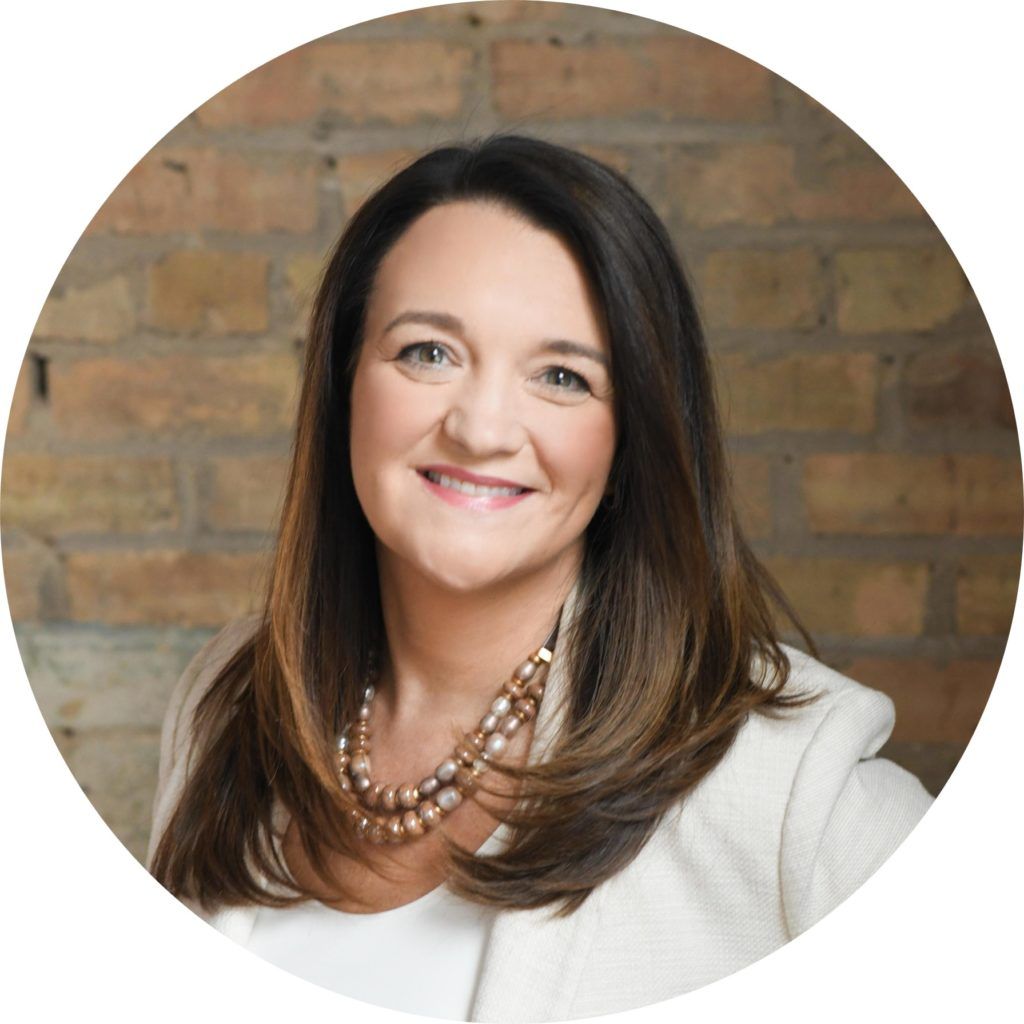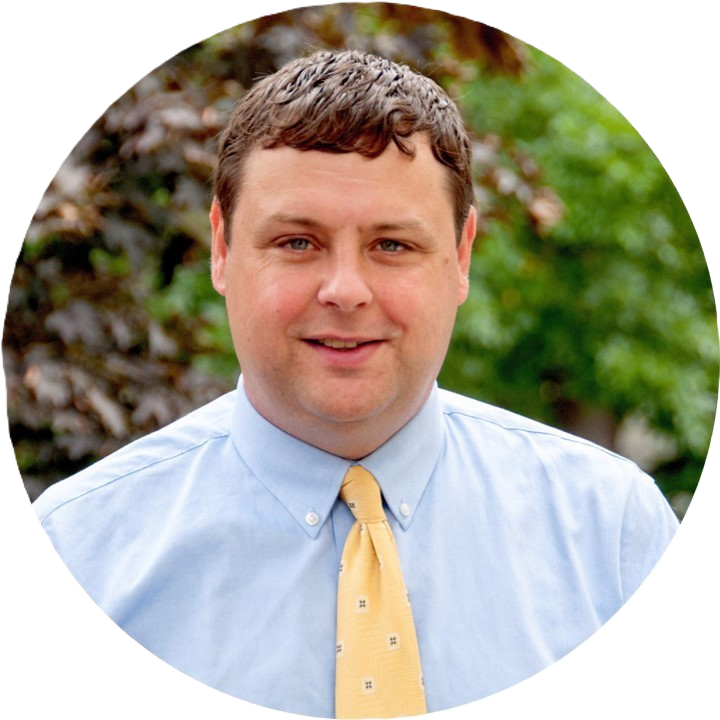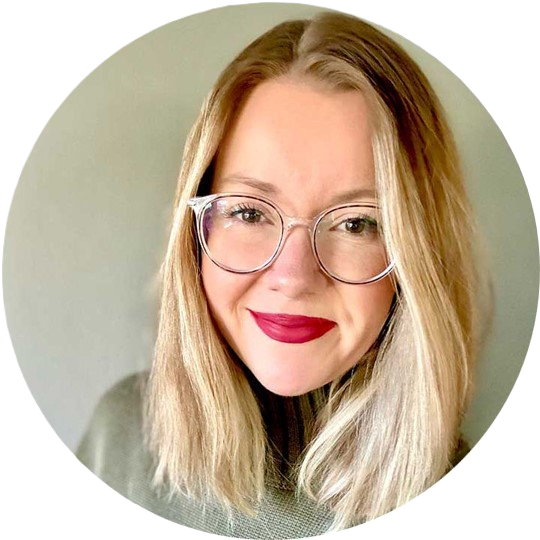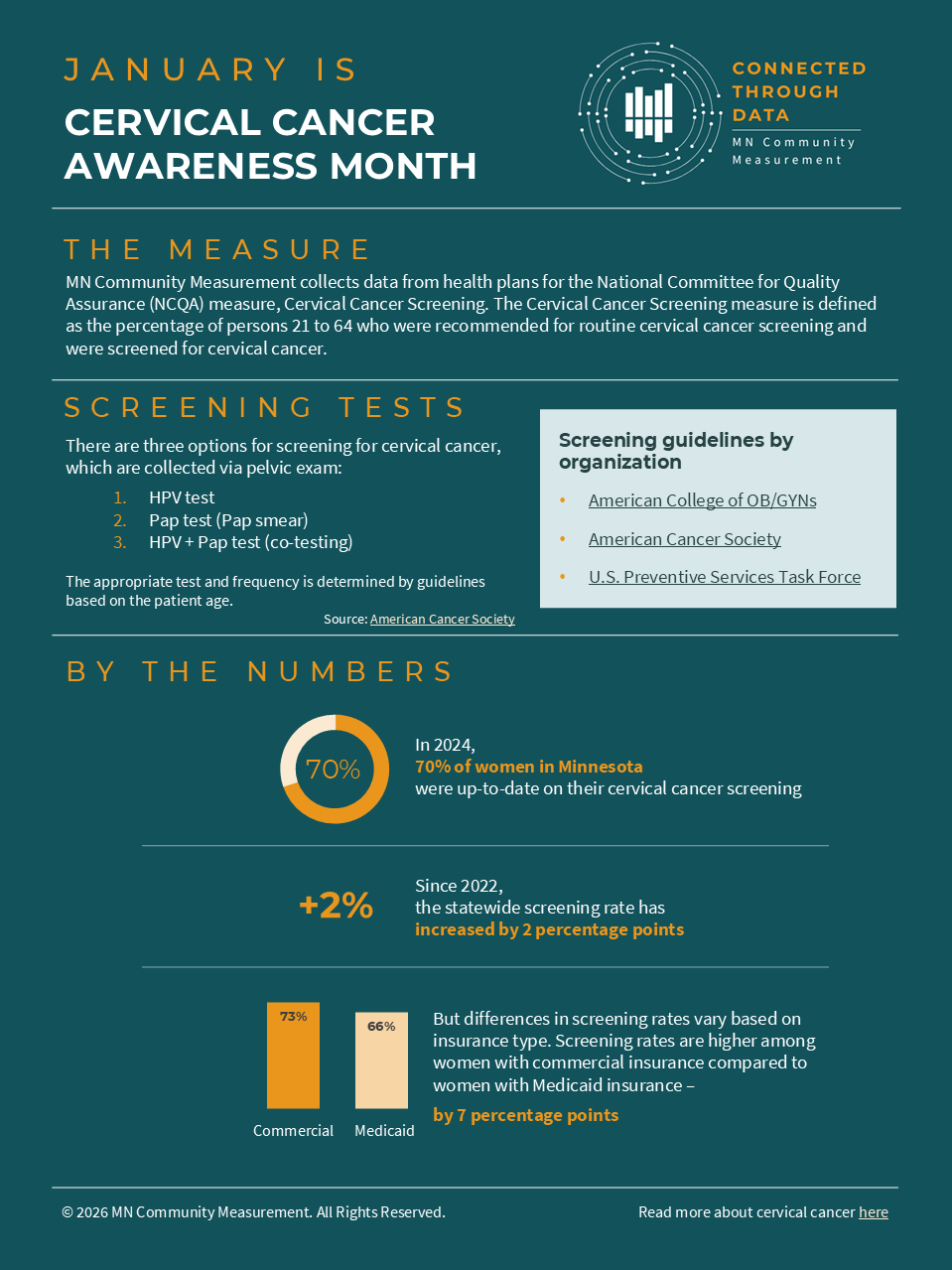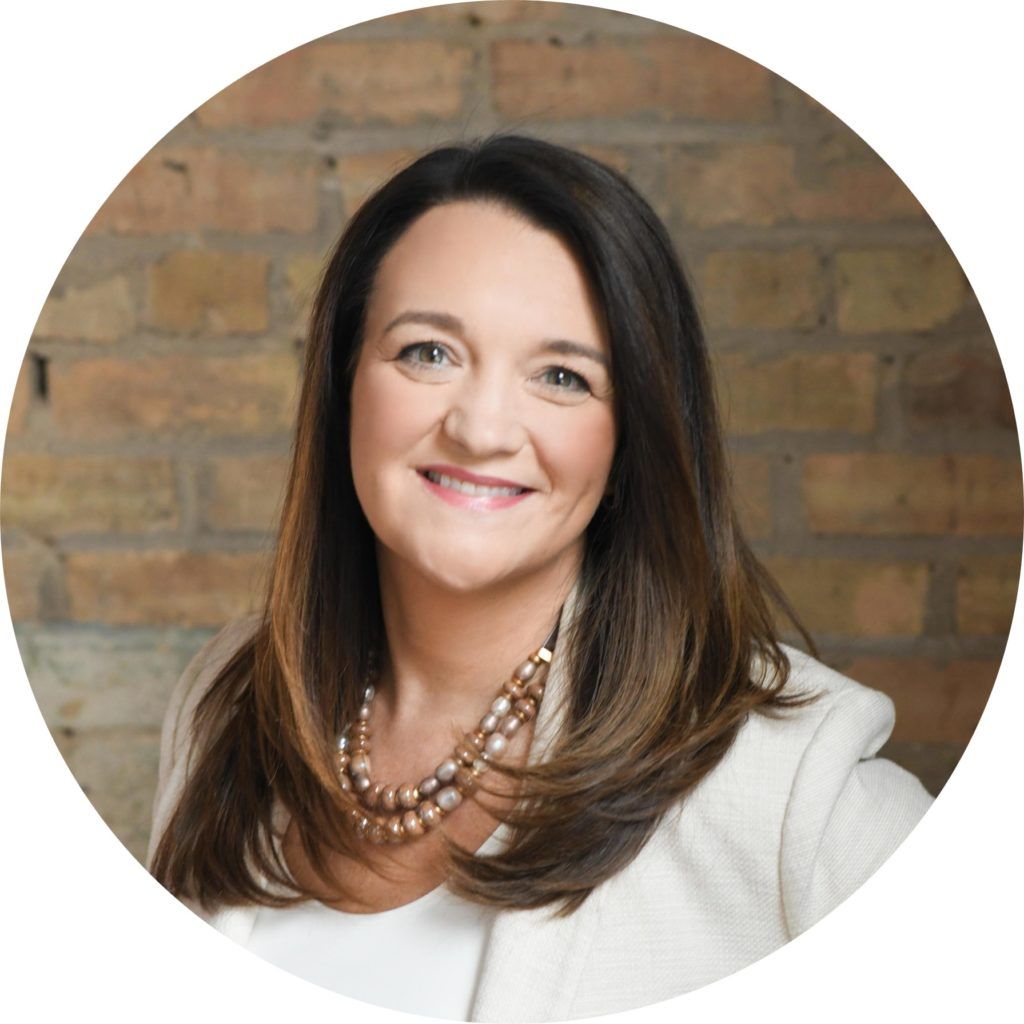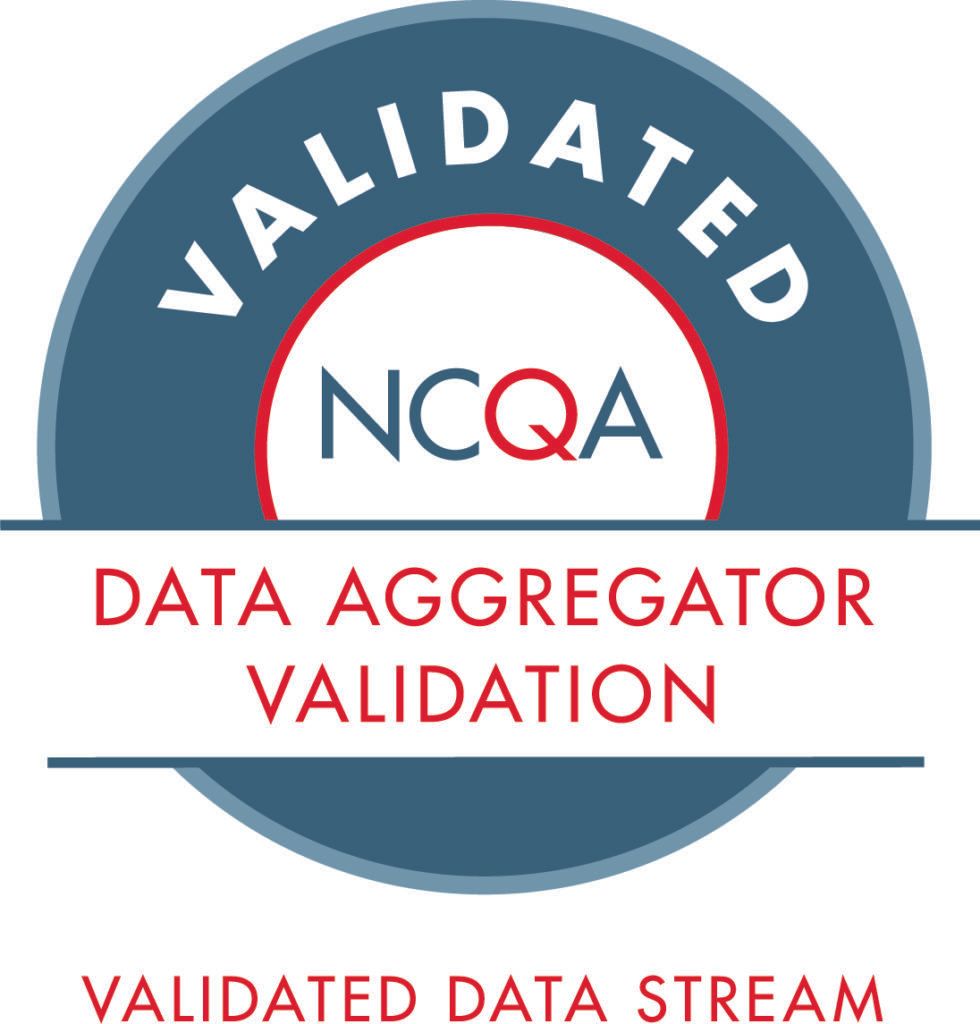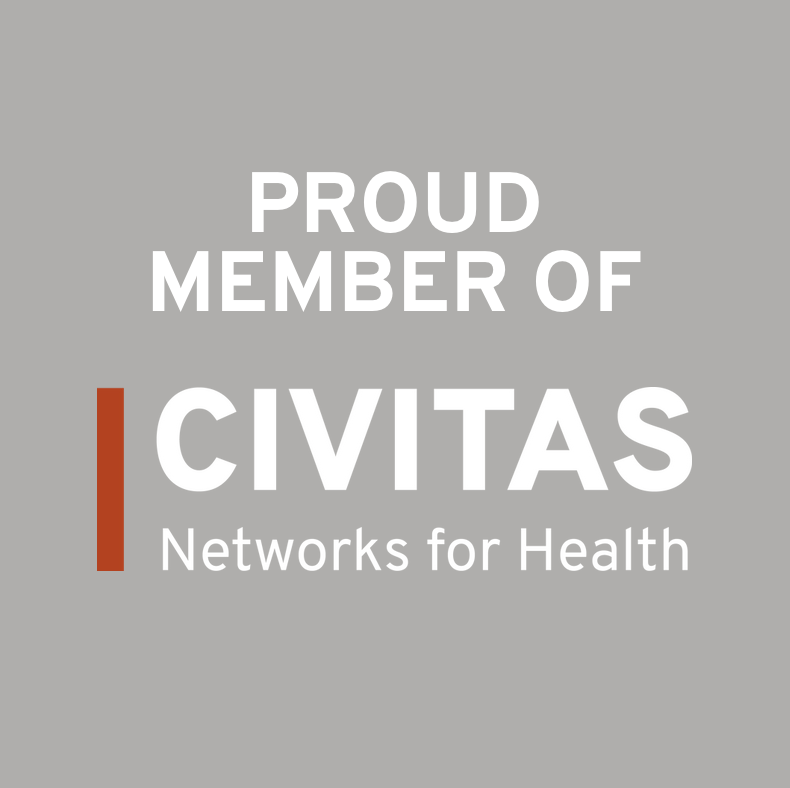MN Community Measurement Releases Latest Report on Health Care Disparities by Insurance Type
April 18, 2024
Disparities continue for individuals enrolled in Minnesota Health Care Programs
ROSEVILLE – APRIL 18, 2024
MN Community Measurement (MNCM) has released its newest report shedding light on health care disparities in Minnesota. The report, titled “Minnesota Health Care Disparities by Insurance Type,” is produced in collaboration with the Minnesota Department of Human Services (DHS), and focuses on care delivered in 2022. The report compares health care quality and outcomes for people who received health insurance coverage through Minnesota Health Care Programs managed care (MHCP) and people with private health insurance or Medicare Advantage plans. This year’s report underscores ongoing challenges and highlights opportunities for improvement in health care access and quality. Key findings include:
- Overall Gaps: Patients with MHCP insurance are falling behind those with other insurance types in almost every area measured. The biggest gap is in the Childhood Immunization Status measure.
- Childhood Immunizations: The completion rate of recommended vaccinations by age 2 for children with MHCP insurance dropped by 6.1%. This decrease matches what has been seen statewide. Experts believe fewer flu shots in recent years are a big reason.
- Racial Disparities: Black and Indigenous/Native MHCP patients still face lower rates than the overall MHCP group in many areas.
- Trends: Since 2018, gaps have narrowed for the Optimal Asthma Control measure for adults and children, and for the Adolescent Mental Health and/or Depression Screening measure. During the same period, gaps have widened for the following measures: Breast Cancer Screening, Childhood Immunization Status (Combo 10), Colorectal Cancer Screening, and Controlling High Blood Pressure.
“In Minnesota, we are fortunate to have data available that can pinpoint where disparities exist for people with health coverage through state programs. We are grateful for the partnership with DHS that allows us to bring these disparities to light – but we know it can’t stop there,” said Liz Cinqueonce, President of MN Community Measurement. “With the release of this latest report, we hope to spark community level conversations that can provide insights on the specific challenges and barriers that are root causes for what we are seeing in the data – and ultimately lead to new strategies that are both data- and community-informed to make meaningful progress in closing these gaps.”
In response to the findings, DHS Commissioner Jodi Harpstead remarked: “As Minnesota strives to address disparities in quality of care through our managed care public health insurance programs, this report shows there is still much work to be done. We remain strongly committed to engaging communities that are experiencing health disparities. We aim to break down persistent barriers and close these unconscionable gaps in quality of care and health outcomes.”
For more information and to access the full report, click here.
About MN Community Measurement
MN Community Measurement is a nonprofit organization dedicated to empowering health care decision makers with meaningful data to drive improvement. A trusted source of health care data since 2005, MNCM works with doctors, hospitals, clinics, insurance companies, and state agencies to collect, analyze, and report health care data related to quality, cost, and equity of health care. Learn more at www.mncm.org.
About MN Department of Human Services
The MN Department of Human Services (MN DHS) is the state Medical Assistance (Medicaid) agency responsible for purchasing health care services for approximately 1.4 million Minnesotans, about 25% of the state’s population. Most Minnesotans enrolled in Medicaid receive services through the state’s contracted managed care organizations. Minnesota Medicaid plays a critical role in ensuring access to high quality care for vulnerable populations including children, persons with disabilities, and seniors. DHS’s mission is, working with others, to help people meet their basic needs so they can live in dignity and achieve their highest potential.
Posted in Press Release
Recent Posts
